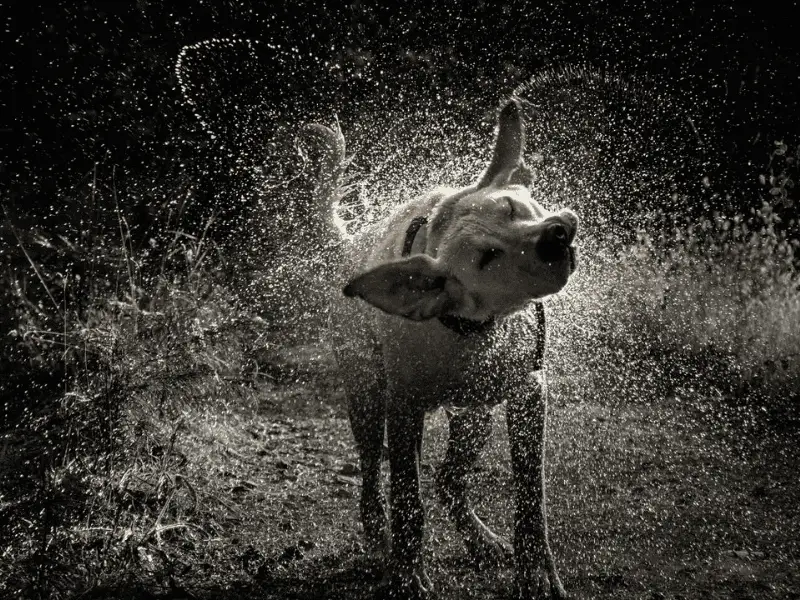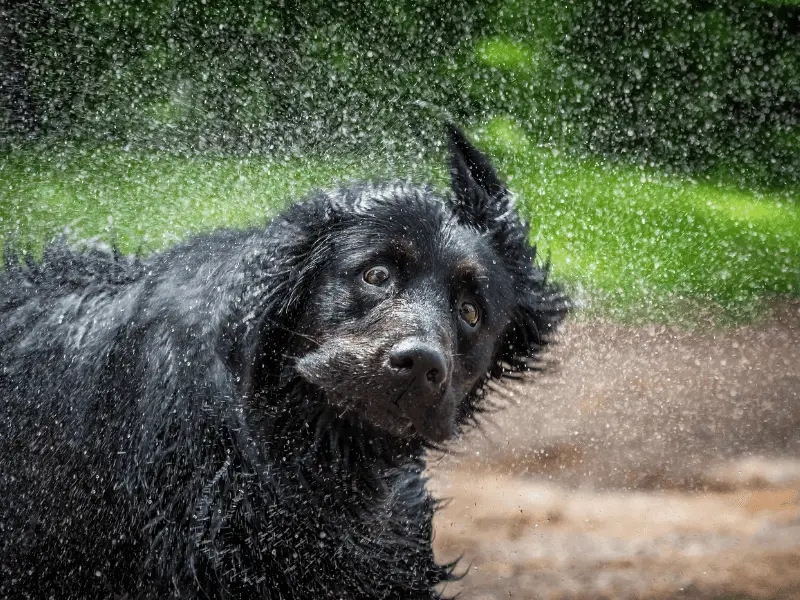If you’re a dog owner, you’ve probably asked why does my dog shake his head? While it might seem like a harmless quirk, excessive head shaking can be a sign of an underlying issue.

Let’s explore some of the most common causes of head shaking in dogs and how to help your pup feel better.
So, Why Does My Dog Shake His Head?
Dogs are excellent communicators, and they use a range of body language to convey their emotions. One common behavior that many dog owners have noticed is head shaking or head tilting.
At a glance, head shaking may come across as a harmless idiosyncrasy, but when it becomes excessive, it can signify a deeper problem.
From ear infections to allergies, there are a variety of reasons why dogs shake their heads.

Common Reasons Why Dogs Shake Their Heads
- Ear Infections: Ear infections are one of the most common causes of head shaking in dogs. When your dog’s ears become infected, they may feel itchy and irritated, leading to excessive head shaking and scratching.
Other symptoms may include redness, swelling, a foul odor, and discharge from the ears. In severe cases, your dog may even experience hearing loss. - Allergies: Dogs can suffer from allergies just like humans, and these can manifest in various ways, including head shaking.
Environmental allergens such as pollen, dust, and mold can cause itching and irritation in the ears, leading to head shaking.
Food allergies can also cause similar symptoms, so it’s essential to identify if any dietary changes have recently occurred. - Foreign Objects: Sometimes, dogs shake their heads when something foreign gets lodged in their ears. This could be anything from a small twig, grass seed, or even a bug.
If you suspect that your dog has something stuck in their ear, take them to the vet immediately. - Neurological Disorders: In some rare cases, excessive head shaking can be a sign of a neurological disorder such as Parkinson’s disease or seizure disorders. A visit to the vet is necessary for proper diagnosis and treatment.
- Behavioral Issues: Some dogs learn to shake their heads as part of a behavioral issue, such as anxiety or seeking attention.
For instance, a dog may shake its head to get its owner’s attention or when it senses an upcoming walk.

How to Identify the Underlying Reason for Your Dog’s Head Shaking
The best way to identify the underlying cause of your dog’s head shaking is by observing and examining their behavior.
Start by checking your dog’s ears for any signs of:
- redness
- swelling
- discharge
If you see anything unusual, take your dog to the vet immediately.
If your dog has no visible symptoms, try to observe their behavior to pinpoint any triggers causing them to shake their head.
For instance, do they shake their head after eating certain foods or when exposed to the outdoors? By keeping track of these triggers, you may be able to determine if your dog has allergies or other issues.
How to Help Your Dog Stop Shaking Their Head
The best way to help your dog stop shaking their head depends on the underlying cause.

For example, if your dog has an ear infection, your vet will prescribe antibiotics or other medications to treat the infection. If your dog has allergies, your vet may prescribe antihistamines or suggest dietary changes.
It’s important to keep your dog’s ears clean and dry to prevent infections.
Avoid using cotton swabs, as they can push debris further into the ear canal. Instead, use a damp cotton ball to gently clean the outer ear.
Capturing the shake motion
This will absolutely put a smile on your face! Photographers Carli Davidson and Variable put together a fun slow-motion video of a collection of dogs shaking and rolling their heads.
Anyone that has ever had a dog knows “the shake”, so imagine how funny that would be to capture on video.
You can also get Shake, the book. Carli Davidson used a high-speed camera to capture hilarious freeze-frame shots of various dogs mid-shake.
Shake was partially inspired by her dog Norbert whose drool she regularly scrubs from the walls of her home due to his frequent shaking.
Head-Shaking Wrap Up
Head shaking is a common behavior in dogs that can indicate a variety of underlying issues. While some causes are harmless, others can be quite concerning.
If you notice your dog shaking their head excessively, it’s essential to identify the underlying reason and seek veterinary care if necessary.
By staying vigilant, keeping your dog’s ears clean, and paying attention to behavioral triggers, you can help your furry companion feel better and lead a happy, healthy life.


